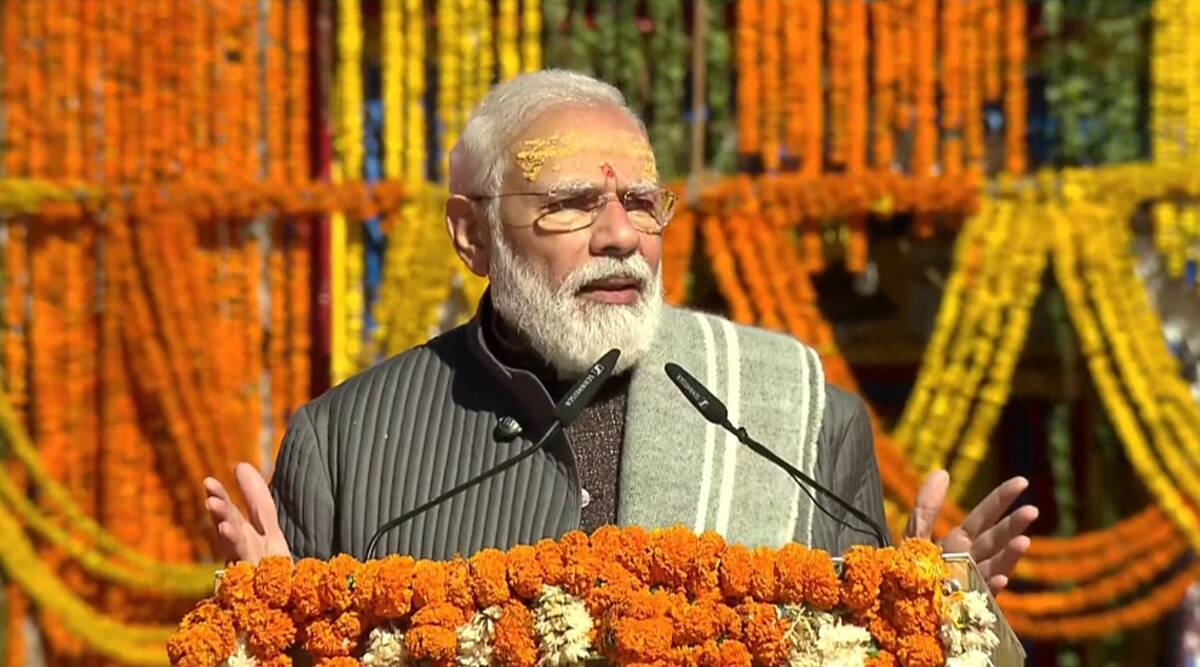Prime Minister Narendra Modi inaugurated the installation of a giant statue of Adi Sankara at Kedarnath on November 5, 2021. On the reconstructed Samadhi of the great seer Prime Minister said, “Adi Shankaracharya’s samadhi is a supernatural view of India’s spiritual prosperity and breadth.”
“The meaning of Shankar in Sanskrit is – ‘Sham Karoti Saha Shankarah’, which means, ‘the one who carries out welfare, he is Shankar. Adi Shankaracharya ji created a strong tradition by sacrificing everything for the sake of the country, society, and humanity,” he shared.
While the entire country hailed this as a defining moment in the nation’s history, derisive comments came from the usual suspects – the Left-Liberal cabal. The nation saw it as a break from the past where the rulers opposed the country’s civilisational past. Former prime minister Nehru had opposed the inauguration of the reconstructed historic Somnath Temple by President Rajendra Prasad.
Is the present Union government mixing politics with religion? Does the western concept of separation of church from the state have validity in the Indic context?
Here’s my take: Adi Sankara laid down cultural and geographical boundaries of our civilisation and was a great unifier. How can the prime minister’s inauguration of the statute of the greatest patriot be called mixing religion with the state? National heroes do not belong to a party or a community. They belong to all.
Marxist-Semitic worldview
We do not need to read Marxism or Western Semitic constructs to understand the meaning and practice of rationalism, secularism, pluralism, or democracy. We learnt it long ago from our sanatan civilisation. This civilisation was shaped from the genius of varied traditions of different regions and our pagan heritage. Slavery, colonialism and imperialism, anti-semitism and racism, fascism, communist totalitarianism, etc. all are legacies of western civilisation. On the contrary, cultural unity and inclusiveness have been hallmarks of our sanatan civilisation.
Colonisation and Genocide
Colonisation by the alien Turks and the British subjected us to religious, cultural, and physical genocide. Whatever beautiful still exists of our civilisation after this genocide survives in beautiful temples and traditions of south and eastern India, since these were farther from the seat of colonial power.
New histories in the wake of this genocide were written for us and about us by colonial propagandists who passed as Orientalists and historians. The objective of this history was to deny us our history and make us feel inferior.
Be it alien historians or their desi apologists, Nationalist and Marxist schools existed for broad continuity. They dismissed native protests as ‘unprofessional views’ which had the temerity to challenge the trained historians. Can’t professional historians be peddlers of disinformation? Is a historian politically neutral?
The transfer of power from the colonialists to the Indian ruling class in 1947 was an opportunity for us to rediscover ourselves and go on a voyage of discovery of our civilisation mauled by colonialists. That was not to be. Political power went into the hands of those who were in one way or the other apologists of colonialists. The quest for discovery of self and Indian self- reaffirmation was not allowed. This also affected our political growth and state-building. The stability of the state demanded that it should not be hostile to its roots and rich past.
A civilisation has to be dynamic. For this, it has to be open to absorb best from any source. But its spirit has to be native. That means combining tradition with modernity. Sanatan civilisation has always been open to all good thoughts. Rigveda proclaims, “Let noble thoughts come from every side.”
What we are witnessing today is a great Indian resurgence. To call this resurgence as the rise of right-wing Hindu majoritarianism, is to move away from facts.
Sanatan civilisation is non-supremacist. It can never be a majoritarian or a closed civilisation. We are seekers, not believers and do not believe in proselytisation. This civilisation can never be anti-minority because the concept of “other” or dhimmihood is alien to it.
Cultural Atheism
There is no meeting ground between Sanatan civilisation and the Marxist/Semitic worldview. Intolerance and absence of pluralism are inbuilt in Marxism or Semitic constructs. As sanatanis, we have the freedom and sanction to be anything. You can be a believer or a non-believer at the same time and yet, no one can call you an apostate or a heretic. Yes, there is caveat – Religious atheism and cultural atheism are not the same.
Religious atheism is a personal choice and pertains to non-belief in God and religious practices. It has no social or state liabilities. But Cultural atheism has a larger connotation with serious ramifications for society and the state. It cuts a person from his roots and makes him hate the society he lives in.
Marxists are cultural atheists. That is what makes them hostile to Hindus and Indian civilisation. They extend Marx’s opiate comment in the religious domain to the cultural domain. It means rejection of your entire civilisation – your identity. Marx’s comments were specific to the long conflict between Church and the state in Europe
Cultural atheism also makes communists take anti-patriotic positions on national unity and cozy up to Muslim communalism-separatism.

